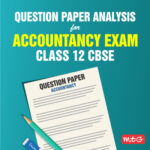India is having the largest youth and adolescent population. Hence the future of the Nation depends of what quality of education we can provide to our youths.
The educational area in the world is taking swift changes. With the rise of big data, machine learning (ML), and artificial intelligence (AI), many inexpert jobs throughout the world may be taken over by machines. Simultaneously, world will demand for the skilled workforce, in conjunction with multidisciplinary abilities across the sciences, social sciences, and humanities.
Keeping all this in focus, Union Cabinet approved New National Education Policy (NEP) 2020 on 29th of July 2020. The National Education Policy 2020 proposes the revision and revamping of all aspects of the education structure, including its regulation and governance, to create a new system that is aligned with the aspirational goals of education, while building upon India’s traditions and value systems. The New Education Policy aims at an inclusive, participatory and holistic approach, however particularly emphasising on the development of the creative potential of each individual. It is based on the principle that education must develop the ‘Foundational Capacities’ of Literacy and Numeracy and ‘High-Order Cognitive Capacities’, such as critical thinking and problem solving and also Social, Ethical, and Emotional Capacities and Dispositions.
The gap between the present state of learning results and what is essential for coming time must be bridged by taking the steps that lead to bring the supreme quality, equity, and integrity into the system, from early childhood care and education through higher education.
Taking the first steps towards its goal, under NEP 2020 guidelines, Central Board of Secondary Education has (CBSE) released a new assessment and evaluation system for the academic year 2021-2022. As per the official notification released by CBSE, more questions based on competency will be added in the final exam paper of the Classes 9, 10, 11 and 12, according to this new evaluation system. These questions will assess students on the concepts in real-life or unfamiliar situations.
The major aim of NEP is to equip students with the ability to solve problems in real life situations. As per the official notice released by CBSE Board, the assessments should focus more on learning and development of students. It should test their “higher-order cognitive skills” such as analysis, critical thinking, and conceptual clarity, rather than testing their ability to memorise.
Must check: Complete features of Foundation course of class 9
Must check: Complete features of Foundation course of Class 10
New Assessment and Evaluation for CBSE Class 9 and 10
For class 9 and 10, 30% competency based questions will be introduced in form of Multiple Choice questions (MCQs), case-based questions, source base integrated questions, etc.
As per the existing pattern, 20% of the questions will be objective type and the remaining 50% will be short and long answer type questions.
New Assessment and Evaluation for CBSE Class 11 and 12
For Classes 11 and 12, 20% competency-based questions, 20% objective type questions and the remaining 60% will be short and long answer type questions.
The overall marks and duration of examination will remain unchanged.
In the letter to the schools, the CBSE said that the competency-based questions could be in the form of Multiple Choice Questions, Case-Based Questions, Course-Based integrated questions or any other types. Besides, the CBSE would continue with Objective Type questions as well as Short and Long Answer Type Questions.
The New Assessment and Evaluation System can be simplified in the given table
Soon CBSE will release the sample papers in accordance with the new evaluation system and has also informed schools to prepare the students as per the changes defined by the board.
Must read: How to score 100% in Class 12 CBSE Physics exam? – Expert Guidance
Let’s have a look at the Existing and Modified Board examination pattern:
Official Notification by CBSE on New Assessment and Education Policy
CBSE reduced the syllabus in the academic session 2020-2021 due to COVID-19 to compensate the academic loss of students and restored those deleted chapters for the academic year 2021-2022.
Must check: Techniques to create Mind Maps – An effective revision tool to rocket fire marks in exams
All the CBSE students should buckle up for the new challenges poured in by the new evaluation system of CBSE board for the year 2021-2022. However, CBSE still has to release the evaluation and assessment for CBSE class 10 Board exams 2021, which are cancelled due to COVID-19 second wave and new exam schedule for Class 12 CBSE Board exams. It is advisable to the CBSE Class 12 students to keep up the spirits high and utilise this time to perform best in the exams.
Class 12 students should keep revising previous year papers to evaluate their preparation benchmarks. Also, keep on solving sample papers to know the areas they still need to strengthen to score high in Board exams.
We advise all students to keep yourself motivated in this distress environment created by the second wave of Covid 19. Stay healthy, stay fit and keep enjoying your studies to achieve your goals.
Recommended: 11 Tips to write prefect answers and score more in CBSE Board exams






































